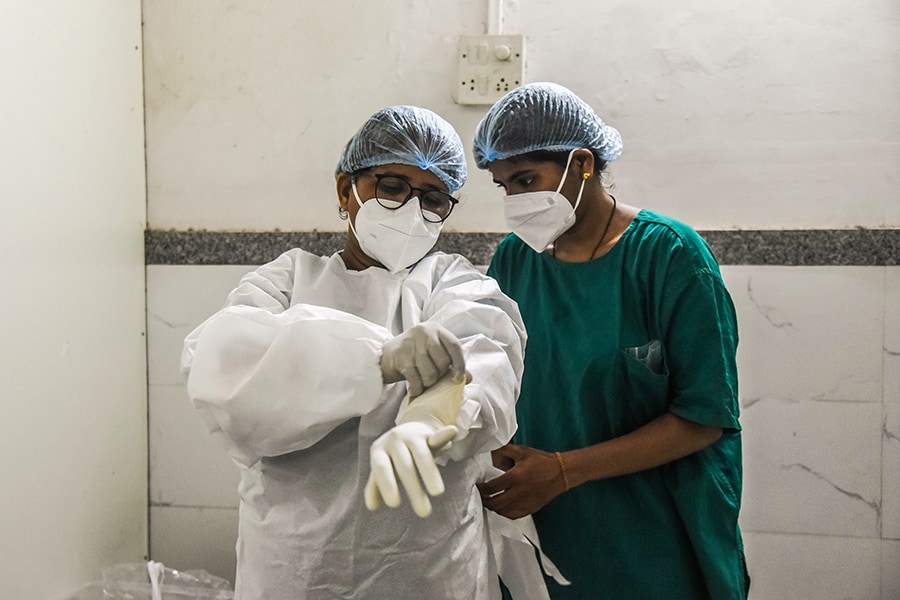
Covid-19 and mental health fallout: Building resilience support for frontline workers essential to limit exits
The mental health of the FLHCWs needs to be addressed as a priority and given equal weightage along with other strategies to manage and control the disease and the pandemic at large
 A colleague helps healthcare worker Shama Shaikh, 53, put on her PPE equipment before working with patients who have Covid-19 in an ICU ward at the government-run St. George hospital on May 27, 2021 in Mumbai, India. India's prolonged and devastating wave of Covid-19 infections has gripped cities and overwhelmed health resources
A colleague helps healthcare worker Shama Shaikh, 53, put on her PPE equipment before working with patients who have Covid-19 in an ICU ward at the government-run St. George hospital on May 27, 2021 in Mumbai, India. India's prolonged and devastating wave of Covid-19 infections has gripped cities and overwhelmed health resources
Image: Fariha Farooqui/Getty Images
Apandemic ominously brings forth news of death, morbidity, and inescapable despair. Carrying out routine duties on the frontline of the pandemic as a frontline healthcare worker (FLHCW), non-frontline healthcare worker (NFLHCW) or a social care professional during a global pandemic such as Covid-19 can be excruciatingly stressful.
It is reminiscent of war-time stress and necessitates appropriate coping and supportive mechanisms. FLHCWs have unwaveringly continued to provide healthcare to patients despite personal risk of infection, fear of transmission to their own families, exhaustion, sickness and death of friends and professional colleagues and being witness to the loss of lives on a routine basis.
Many healthcare workers have been working in unfamiliar clinical settings and holding the fort with insufficient skills, inadequate clinical experience, or training in tune with the demand. Long hours of working wearing uncomfortable and unfamiliar personal protective equipment (PPE), working with insufficient resources and the absence of specific treatments for Covid-19 has made healthcare workers overwhelmed.
[This article has been published with permission from IIM Bangalore. www.iimb.ac.in Views expressed are personal.]







